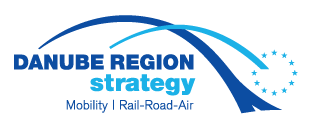All news
ROAD TRANSPORT SECTOR
On Monday, 6th June 2020, EP TRAN (Transport Committee) approves major reform of road transport sector related to:
a) Improving drivers’ working conditions, b) Clear rules on posting of drivers and c) Better enforcement to fight illegal practices.
MEPs endorsed the deal reached with EU ministers. The revised rules for posting of drivers, drivers’ rest times and better enforcement of cabotage rules (i.e. transport of goods carried out by non-resident hauliers on a temporary basis in a host member state) aim to put an end to distortion of competition in the road transport sector and provide better rest conditions for drivers.
Better working conditions for drivers: The new rules will help to ensure better rest conditions for drivers and allow them to spend more time at home. Companies will have to organise their timetables so that drivers in international freight transport are able to return home at regular intervals (every three or four weeks depending on the work schedule).
The mandatory rest period at the end of the week, known as regular weekly rest, cannot be taken in the truck cab. If this rest period is taken away from home, the company must pay for accommodation costs.
Fairer competition and fighting illegal practices: Vehicle tachographs will be used to register border-crossings in order to tackle fraud. Existing limits to cabotage remain the same (three operations within seven days). To prevent systematic cabotage, there will be a cooling-off period of four days before more cabotage operations can be carried out within same country with the same vehicle.
To fight the use of letterbox companies, road haulage businesses would need to have substantial activities in the member state in which they are registered. The new rules will also require trucks to return to the company’s operational centre every eight weeks.
Given that vans are increasingly used to provide international transport services, using light commercial vehicles of over 2.5 tonnes will also be subject to EU norms for transport operators, including equipping the vans with a tachograph.
Clear rules on posting of drivers: The new rules on posting of drivers will give a clear legal framework to prevent differing national approaches and ensure fair remuneration for drivers. Posting rules will apply to cabotage and international transport operations, excluding transit, bilateral operations and bilateral operations with one extra loading or unloading per direction (can be added up: e.g. none on the way out and two on the return leg).
Confirming its decision from January 2020, the TRAN Committee supported in second reading all three social and market access dossiers.
The Council adopted the reform on 7 April 2020.
Next steps: The full house will vote on the reform during its July session. The new rules will be considered to be adopted if no amendments are voted through with an absolute majority in favour (i.e. at least 353 votes).
The rules on posting will apply 18 months after the entry into force of the legal act. The rules on rest times, including the return of drivers, will apply 20 days after publication of the act. Rules on return of trucks and other changes to market access rules will apply 18 months after the entry into force of the act on market access.


